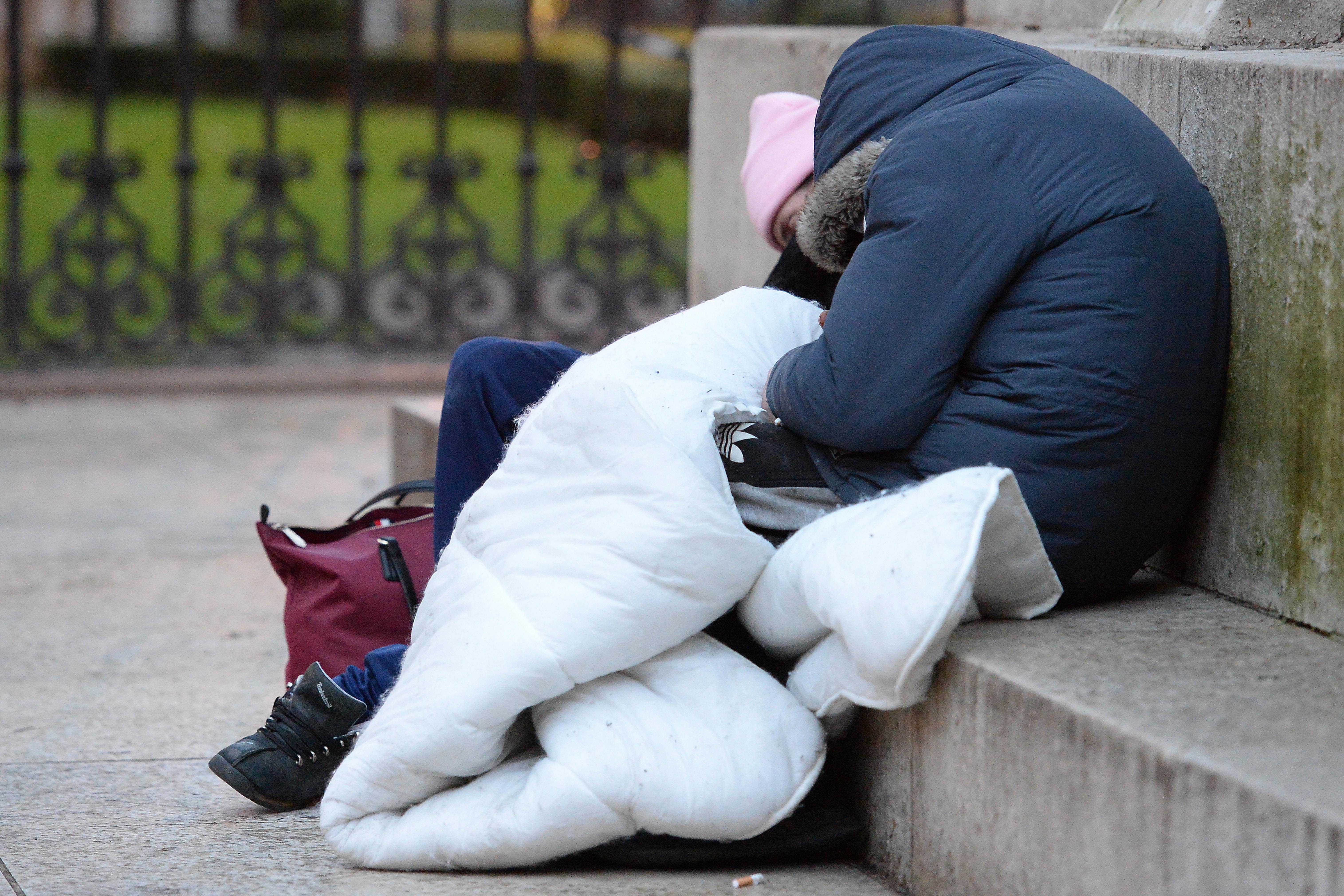Councils face £300m funding gap to help young homeless, says charity
Centrepoint said its analysis showed local authorities do not have the resources to meet increasing demand.

Your support helps us to tell the story
From reproductive rights to climate change to Big Tech, The Independent is on the ground when the story is developing. Whether it's investigating the financials of Elon Musk's pro-Trump PAC or producing our latest documentary, 'The A Word', which shines a light on the American women fighting for reproductive rights, we know how important it is to parse out the facts from the messaging.
At such a critical moment in US history, we need reporters on the ground. Your donation allows us to keep sending journalists to speak to both sides of the story.
The Independent is trusted by Americans across the entire political spectrum. And unlike many other quality news outlets, we choose not to lock Americans out of our reporting and analysis with paywalls. We believe quality journalism should be available to everyone, paid for by those who can afford it.
Your support makes all the difference.Councils in England are more than £300 million short of the funding they need to help all of the young people coming to them who are facing homelessness, according to new analysis.
Centrepoint estimated that an increasing number of young people are being turned away by councils which “do not have the means” to fulfil their legal duties in carrying out an assessment of someone who approaches them for help.
The charity, which works to tackle youth homelessness, has commissioned research which suggested that local authorities would need 15% more funding from central Government to meet the needs of all of the young people – aged 16 to 24 – approaching them for homelessness support.
Centrepoint estimated last year, using Freedom of Information requests to local authorities, that more than a third of the 119,300 young people in England who approached their councils for homelessness support between April 2022 and March 2023 were not assessed.
Using this estimate, the latest analysis – carried out for the charity by WPI Economics – calculated how much funding would be needed would by councils to meet their obligations under the Homelessness Reduction Act (HRA) to assess, and provide support where necessary.
It suggested that if all of the young people turned away were assessed in the normal way, councils would need 15% more funding from central Government to meet their needs, equating to a shortfall of around £332 million.
The research suggested that Newham, in east London, could need as much as £32 million to meet the needs of the young people in that area, while there is a more than £10 million shortfall in the local housing authorities in Liverpool, Hammersmith and Fulham, Ealing, Cornwall and Bexley.
More than 119,000 young people in England faced homelessness last year, a record high, and we estimate an increasing proportion of them are being turned away without an assessment
Local housing authorities have statutory duties under various housing legislation to give free advice and assistance to households who are either homeless or at risk of becoming homeless.
Alicia Walker, head of policy, research and campaigns at Centrepoint said: “Councils have a legal duty to assess anyone who presents as homeless, but we are deeply concerned that they do not have the means to carry out these duties.
“It’s not good enough that so many young people are not getting the chance of that assessment, let alone accessing support.
“More than 119,000 young people in England faced homelessness last year, a record high, and we estimate an increasing proportion of them are being turned away without an assessment.”
But she added: “We can’t just blame councils for this. It’s clear they don’t have the resources to meet increasing demand for homelessness services, and the government needs to address this crisis.”
Darren Rodwell, housing spokesperson for the Local Government Association, said: “Councils have consistently raised significant concerns about the impact rising cost of living, multiple asylum and resettlement programmes, and an insufficient supply of affordable housing, are having on driving increases in homelessness.
“Currently, councils are spending £1.74 billion on supporting households living in temporary accommodation, with this spend predicted to increase by a further 19.9% in 2023/24.
“Discrepancies between the temporary accommodation subsidy and the cost of temporary accommodation means that councils are increasingly using more of the Homelessness Prevention Grant and their General Fund to pay for temporary accommodation.
“We urge the Government to address the subsidy gap, so that councils have more money to spend on delivering homelessness and housing support, as well as provide multi-year funding to put towards crucial homelessness prevention activities.”
A spokesperson for the Department of Levelling Up, Housing and Communities said: “We recognise that young people experiencing homelessness face particular challenges, and we want to ensure that they get the support they need.
“That is why we are spending £1.2 billion over three years to give councils the funding they need to prevent homelessness and help more people sooner, as well as supporting councils with our dedicated youth homelessness advisor roles.”